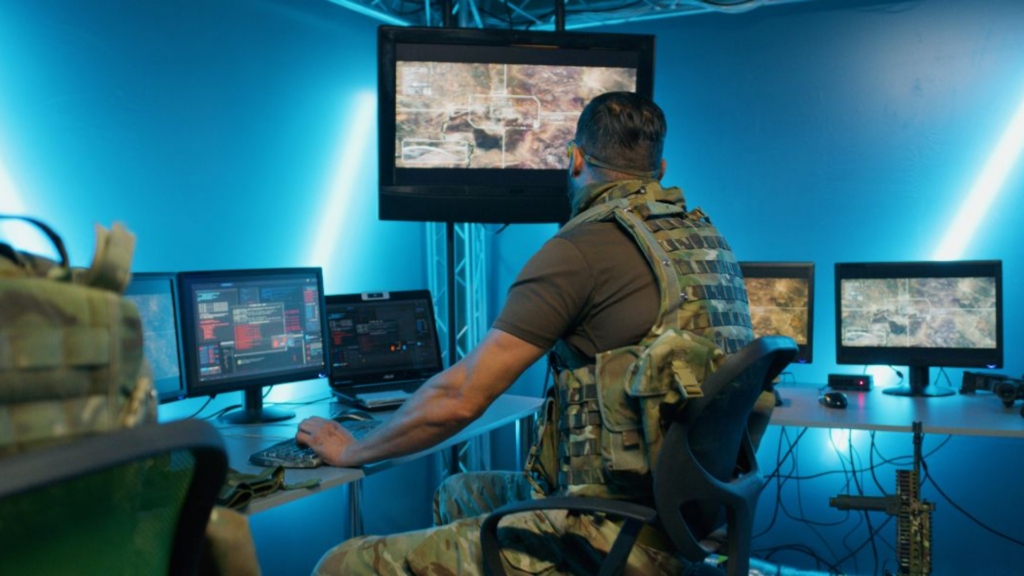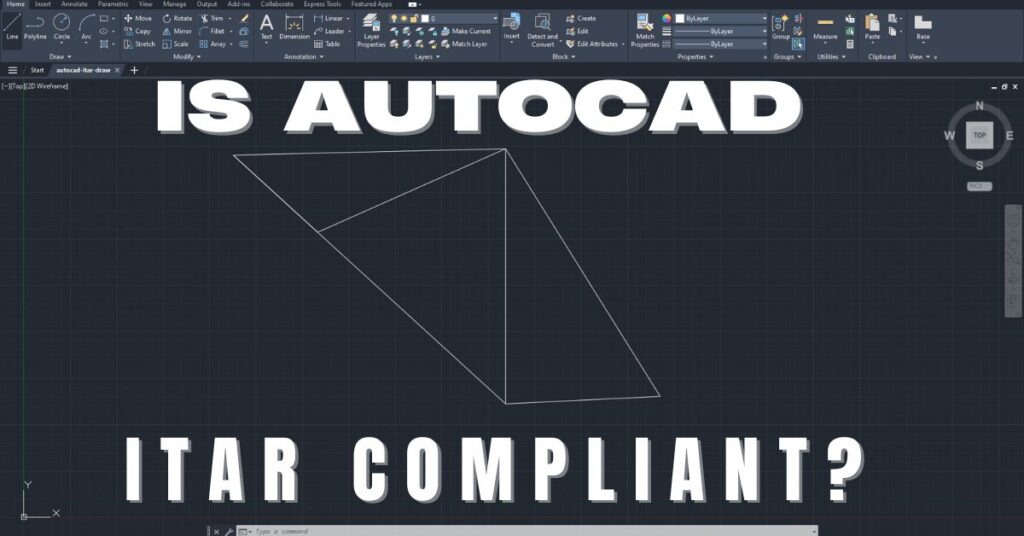Essential Steps: How to Become a Defense Manufacturer in 2024
The defense manufacturing sector is a lucrative and dynamic industry that offers numerous opportunities for businesses ready to navigate its complexities. Whether you’re transitioning from commercial manufacturing or starting a new venture focused on defense contracts, understanding the critical steps and compliance requirements is essential. In this comprehensive guide, we’ll walk you through the key aspects of becoming a defense manufacturer, ensuring you are well-prepared to meet industry standards and secure your place in this vital sector.
Understanding the Defense Manufacturing Industry
Before diving into the specifics, it’s crucial to grasp the broader landscape of the defense manufacturing industry. This sector encompasses the production of military equipment, weapons, and technologies that support national defense and security. The market is heavily regulated, with stringent compliance requirements to protect sensitive information and maintain national security.
Market Opportunities and Challenges
The defense manufacturing industry offers significant market opportunities, driven by government contracts and the ongoing need for advanced military technologies. However, it also presents unique challenges, including navigating complex regulatory frameworks and maintaining high standards of security and quality.
Strategic Entry Paths for a Defense Manufacturer
There are two primary paths to becoming a defense manufacturer: transitioning from commercial manufacturing or starting a new operation aimed at defense contracts. Each path has its considerations and requirements.
Transitioning from Commercial Manufacturing
If you’re already a commercial manufacturer, becoming a defense manufacturer can be a strategic move. This transition involves adapting your existing business model to meet defense-specific requirements, such as compliance with the International Traffic in Arms Regulations (ITAR) and the Defense Federal Acquisition Regulation Supplement (DFARS).
Starting a New Defense Manufacturing Operation
Starting a new operation dedicated to defense manufacturing involves building your business from the ground up with a focus on meeting defense contract requirements. This approach allows you to tailor your operations, supply chain, and security measures to the stringent standards of the defense industry.
Market Research and Business Planning
Thorough market research and a well-developed business plan are foundational to your success in the defense manufacturing industry.
Conducting Market Research
Start by identifying defense contracts and understanding the requirements of potential clients, including government agencies and prime defense contractors. Analyze the competition and market trends to position your business effectively.
Developing a Comprehensive Business Plan
Your business plan should include financial projections, product development strategies, and a roadmap for achieving compliance with regulatory standards. Consider forming strategic partnerships and alliances to strengthen your market position and capabilities.
Compliance and Certification
Compliance with regulatory standards is non-negotiable in the defense manufacturing sector. Key regulations include ITAR, DFARS, and the Cybersecurity Maturity Model Certification (CMMC) 2.0.
ITAR Compliance
ITAR regulates the export of defense-related articles and services to safeguard national security. To comply with ITAR, you’ll need to register with the Directorate of Defense Trade Controls (DDTC), classify controlled articles and data, and ensure that only authorized U.S. persons access sensitive information.
DFARS Compliance
DFARS governs the acquisition process for the Department of Defense (DoD). Compliance involves adhering to specific cybersecurity requirements, particularly concerning the protection of Controlled Unclassified Information (CUI).
CMMC 2.0 Implementation
CMMC 2.0 is a unified cybersecurity standard for DoD acquisitions. Implementing CMMC 2.0 involves achieving a certain level of cybersecurity maturity through practices and processes that protect CUI.
Assistance with SAM Registration
Registering with the System for Award Management (SAM) is essential for securing defense contracts. This process involves creating and maintaining a SAM profile, ensuring your business meets federal procurement requirements.
Supply Chain Management
Supply chain management plays a crucial role in defense manufacturing. A secure and reliable supply chain is essential for ensuring the timely delivery of critical components and materials required for the production of defense equipment and systems
Supply Chain Management
Supply chain management plays a crucial role in defense manufacturing. A reliable supply chain is essential for ensuring the timely delivery of critical components and materials required for the production of defense equipment and systems.
Establishing a Secure Supply Chain
Vet and qualify suppliers to ensure they meet security and compliance standards. Audits, on-site inspections, and continuous monitoring ensure suppliers meet mandated standards. Develop long-term partnerships to maintain consistency and reliability.
Risk Assessment and Mitigation
Regularly assess supply chain risks and implement measures to mitigate potential disruptions. This includes ensuring traceability and inventory control.
Facility Security
Choosing the right facility locations and implementing robust security measures are paramount. Facilities must meet stringent security protocols to safeguard CUI and technology. CMMC’s PE Domain mainly ellaborates the physical security requirements for defense manufacturer facilities.
Considerations for U.S. Locations
U.S. locations offer easier compliance with ITAR and DFARS regulations, strong intellectual property protection, and proximity to key partners like government agencies and prime defense contractors.
Considerations for Conflict Countries
Operating in conflict countries poses significant risks, including political instability and challenges in ensuring compliance with U.S. export control regulations. Assess these risks carefully and implement stringent security protocols.
Visitor Management
Managing visitors to your facilities is a critical aspect of maintaining security.
Visitor Management Guidelines
Develop a comprehensive visitor management policy that clearly outlines procedures for visitor access, identification, and monitoring. Identify restricted areas within the facility and establish protocols for providing authorized visitors with designated escorts. Implement a robust visitor logging system to maintain accurate records of visitor entries, exits, and movements within the premises..
Visitor Screening and Vetting
Implement rigorous visitor screening and vetting processes to mitigate potential security risks. Screen visitors for citizenship status, employment history, and potential security concerns. Prohibit unauthorized access to sensitive areas, such as production floors, research and development facilities, or classified information storage locations. Issue visitor badges or credentials that clearly distinguish visitors from employees and contractors..
Employee Training
Conduct regular training sessions for employees to ensure they are well-versed in visitor policies and access control procedures. Educate them on identifying and reporting suspicious behavior, unauthorized individuals, or potential security breaches. Encourage a culture of vigilance and empower employees to challenge and report any violations of visitor management protocols.
Cybersecurity Measures
Implementing robust cybersecurity measures is essential to protect sensitive information and maintain compliance.
Risk Management and Security Frameworks
Develop comprehensive security protocols tailored to the unique requirements of the defense manufacturing sector. Adopt industry-recognized risk management frameworks to establish a robust cybersecurity posture. Conduct regular vulnerability assessments, compliance audits, and security control validation to ensure ongoing adherence to mandated standards.
Data Protection and Incident Response
Create robust strategies for protecting sensitive data, including classified information, intellectual property, and personally identifiable information, from unauthorized access or breaches. Implement data loss prevention (DLP) solutions, access controls, and secure backup and recovery mechanisms. Develop detailed incident response plans to swiftly detect, contain, and mitigate the impacts of potential security incidents, ensuring business continuity and minimizing disruptions to critical operations.
Consulting Services
Navigating the complexities of defense manufacturing requires expert guidance. Our firm specializes in cybersecurity and information management, focusing on ITAR, CUI, DFARS, and CMMC 2.0 compliance. We offer tailored consulting services to help you:
- Adapt your business model for defense contracts.
- Conduct detailed market analysis and develop entry strategies.
- Achieve and maintain compliance with ITAR, DFARS, and CMMC 2.0.
- Optimize your supply chain and ensure facility security.
- Register and manage your SAM profile.
Conclusion
Becoming a defense manufacturer involves strategic planning, compliance with stringent regulations, and robust security measures. Whether you’re transitioning from commercial manufacturing or starting a new venture, understanding the key steps and leveraging expert consulting services will position you for success in this dynamic industry.
For personalized consulting services or more information, contact us today and take the first step toward securing your place in the defense manufacturing sector.
Share in Social Media
See More Case Studies

Securing Defense Contracts: A DFARS 252.204-7012 Compliance Case Study
Discover how Cleared Systems helped a Federal Contractor successfully achieve DFARS 252.204-7012 compliance by strengthening its cybersecurity posture, giving it a competitive edge when bidding for DoD Contracts.

What is GCC High? For ITAR & CMMC 2.0
Microsoft 365 Government Community Cloud (GCC) High is a specialized cloud solution tailored for U.S. federal, state, local, tribal, and territorial government organizations, as well as for contractors who hold or process data subject to specific security regulations. In this article, we will explore the features, benefits, and differences between Microsoft 365 GCC High and other Office 365 offerings.

Is AutoCAD ITAR Compliant? A Comprehensive Guide for Defense Manufacturers
Defense contractors and manufacturers working with sensitive military technologies face a critical question when selecting computer-aided design software: Is AutoCAD ITAR compliant? This question becomes

How to Get Help in Windows: Guide to Security and Compliance Support
In today’s digital landscape, ensuring your computer systems are secure and compliant with industry regulations is essential for both businesses and individuals. Windows, as one

Microsoft Copilot for GCC High: Enhancing Security and Compliance
In today’s fast-evolving digital landscape, organizations that handle sensitive data, particularly those in government sectors or defense contractors, face growing pressure to maintain strict security
Partner with Us for Compliance & Protection
We’re happy to answer any questions you may have and help you determine which of our services best fit your needs.
Your benefits:
- Client-oriented
- Security
- Compliance
- Peace of mind
- Efficiency
- Trust
What happens next?
Schedule an initial meeting
Arrange a discovery and assessment call
Tailor a proposal and solution
